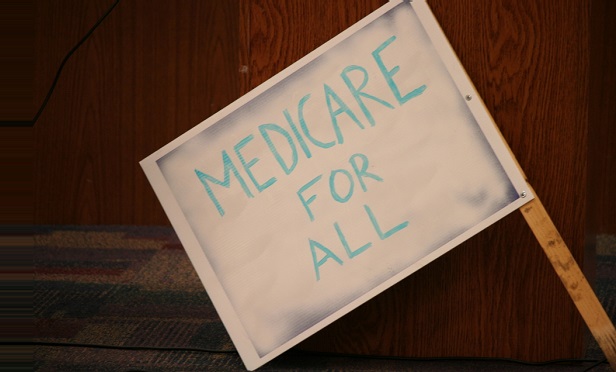 The study found that a progressive tax system that would replace premiums, deductibles, co-payments and out-of-pocket costs would result in thousands in savings every year for the average family. (Photo: Shutterstock)
The study found that a progressive tax system that would replace premiums, deductibles, co-payments and out-of-pocket costs would result in thousands in savings every year for the average family. (Photo: Shutterstock)
A new study published in The Lancet adds to the growing appeal of Medicare for All, estimating that it would not only save $450 billion but would also save more than 68,000 lives from unnecessary death—every year.
The study found that a progressive tax system that would replace premiums, deductibles, co-payments and out-of-pocket costs would result in thousands in savings every year for the average family, and would also be most beneficial for lower-income households.
Related: The other America: Health care leads the way in perceptions of inequality
Between expansion in coverage and the savings that would be brought about if the Medicare for All Act is passed, the study authors estimated that a single-payer system would cut 13 percent in national health care spending, or more than $450 billion annually.
In addition, funding the whole system would cost less than what is presently paid by both employers and employees' premiums, as well as the funding provided by existing government allocations for medical premiums.
According to Common Dreams, the latest study earned praise from Sen. Bernie Sanders. "In other words, guaranteeing health care as a human right by creating a Medicare for All system will cost substantially less than our current dysfunctional health care system," Sanders said. "It will save working class families thousands of dollars and it will prevent tens of thousands of Americans from dying each year."
It's not just individuals and employers who would benefit from the Medicare for All act, either, according to the study. Struggling hospitals in low-income communities would no longer have to deal with uncompensated care, and would benefit by Medicaid rates being raised to Medicare levels. They would also be able to cut administrative overhead.
The study "debunks several attacks on Medicare for All from the private health care industry," according to Common Dreams, which points out that doctors and hospitals would have more time to spend with patients and have fewer expenses from more streamlined administrative and billing systems.
The study is one of many concluding that a single-payer health care system would result in improved health outcomes for Americans while also saving money and cutting waste from the health care system.
One such survey, published in PLOS Medicine earlier this year, looked at studies from the past 30 years and found that 19 out of 22 would decrease costs in the first year and provide significant savings within a decade.
Read more:
© 2025 ALM Global, LLC, All Rights Reserved. Request academic re-use from www.copyright.com. All other uses, submit a request to [email protected]. For more information visit Asset & Logo Licensing.







